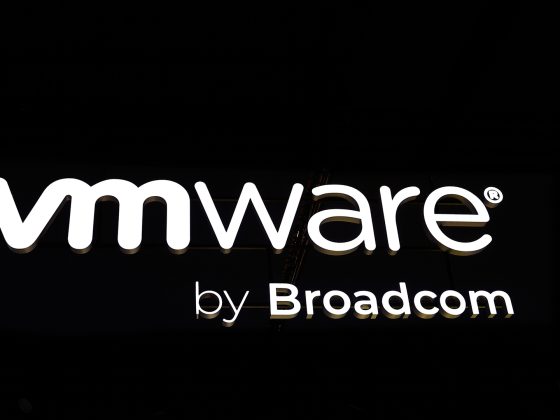- Inadequate data holds back the allocation of funds to sustainable projects.
- Regulators can cooperate with data providers and industry to identify data gaps.
- Sustainability experts and data scientists are needed to ensure that data is properly collected, reported and deployed in investment decisions.
It has been more than a decade since former UN Secretary-General Ban Ki-moon called climate change the “defining challenge of our era”. There is now widespread scientific evidence pointing to human responsibility in the warming of the climate.
Climate change transcends geographical boundaries and acts as a threat multiplier, exacerbating food shortages, migration and conflict. The exploitation of natural resources, related mass production and globalization have created an environment leading to global pandemics such as the one we are experiencing today.
Despite global acknowledgement of this immediate threat, capital investors still do not have the data needed to allow enough understanding and effective integration of sustainability considerations into investment decisions, resulting in capital being allocated to environmentally or socially damaging projects and assets.
From our partners:
For this reason, in January 2020 in Davos, Refinitiv and the World Economic Forum spearheaded the formation of the Future of Sustainable Data Alliance (FoSDA), a multi-member alliance with the goal of addressing the climate crisis from a data perspective and fostering collaboration in financial markets. FoSDA believes that investors need reliable, decision-ready data to confidently invest in sustainable economic activities.
Founding partners of FoSDA include; the UN, the Institute of International Finance, Asia Securities Industry & Financial Markets Association, Tsinghua University, the Official Monetary and Financial Institutions Forum, the Global Financial Markets Association, Climate Bonds Initiative, FinTech4good, Everledger, Oxford University, the Spatial Finance Initiative, Catapult, Finance for Biodiversity, GoImpact and Icebreaker One.
With its one-year anniversary this month and the ever pressing need to address climate change, FoSDA is actively engaging new partners and supporters to move into phase 2 at a pivotal time for the Alliance and our planet.
Why does it matter?
FoSDA was formed to ask the central question: what data is required for financial markets to build a sustainable future?
The current ESG landscape is plagued by data gaps and data holes. A data gap is a well-defined dataset that still requires populating. A data hole is where we know we need data to measure or monitor a material impact, but the data either doesn’t exist or hasn’t yet been defined.
This missing crucial information is problematic for both industry and policy decision-making. It creates challenges for investors seeking to deploy capital sustainably, for companies and issuers benchmarking their actions, and for regulators assessing systemic risk and risk management.
Data is a building block to achieving global financial sustainability. Inadequate data prevents regulators from recognizing areas where public action might be needed to address environmental and social problems, it holds back the allocation of funds to sustainable projects, hinders financial institutions from carefully assessing ESG risks, and prevents governments from determining deficiencies in compliance. Therefore, tackling data gaps and data holes is a pressing issue for multiple stakeholders united in fostering the collection and processing of ESG data.
How do we achieve these objectives?
On 10 December 2020, FoSDA published a series of recommendations driven by three primary themes:
1. Defining and creating a path to filling ESG data gaps and data holes
An important data hole identified by the Alliance is data for biodiversity. Today’s regulatory requirements are heavily focused on climate; an overarching and holistic understanding of sustainability risks and opportunities should be promoted, embracing a wider spectrum of nature-based data to support net zero targets.
The following model suggests how regulatory authorities can cooperate with data providers and industry to identify data holes and gaps and build effective regulatory compliance.

Furthermore, the Alliance calls on the industry to move away from a yes-or-no binary reporting, toward more detailed reporting. Regulators should reorient their focus to more forward-looking datasets, for example via scenario analysis and “alternative worlds” models, whilst ensuring harmonization between reporting, risk management, and standard setting. To this end, standard setting bodies should accelerate convergence towards common definitions in the ESG reporting space in partnership with the data ecosystem.
2. Mapping data to sustainability taxonomies and policies
Taxonomies strive to create definitional frameworks of what is and what is not “green”. While global organizations work to compare and harmonize various global taxonomies, the Alliance believes clearly mapping the datasets required for each of the taxonomy obligations is essential to make efficient use of these taxonomy frameworks.
This requirement to map the data also applies to regulatory policies being implemented worldwide. Financial institutions require clear guidance on which datasets will help them fulfil their regulatory obligations. The willingness to comply must be matched with the clarity of what data is required to do so.
3. The global need for ESG data talent development
Sustainability experts and data scientists are needed to ensure that data is properly collected, reported and deployed in investment decisions. Governments, regulators and industry should join forces in supporting data skills and educational programmes, which would help create a talent pool for meeting these objectives, whilst also ensuring that innovative technologies such as AI and blockchain are manufactured and deployed sustainably.
Gathering the world’s thinkers now
As we all navigate the challenges of the COVID-19 pandemic and resulting economic crisis, the global environmental crisis has not declined nor has it been relegated in importance. We all recognize the need to build back better and include sustainability in our future growth plans.
FoSDA will play its role by drawing on the collective expertise and experience of its partners, highlighting what work is needed to make ESG data comprehensive and, by working with regulators, offering recommendations to achieve that. In practical terms, the Alliance seeks to achieve its goals by serving three purposes:
- Facilitating exchange of experience and insights on ESG data;
- Acting as a forum to map, harmonize and promote common standards and best practices;
- Producing recommendations jointly with regulators, data providers and the industry to empower organizations to meet our shared goals of economic stability and inclusive growth.
There has never been a more important time to rapidly achieve the goals of sustainable finance for the global good. FoSDA will continue its work to improve the fundamental building block of that journey: data.
Join us on the journey.
By Sherry Madera Chief Industry and Government Affairs Officer, Refinitiv
This article is republished from WeForum.
For enquiries, product placements, sponsorships, and collaborations, connect with us at [email protected]. We'd love to hear from you!
Our humans need coffee too! Your support is highly appreciated, thank you!




